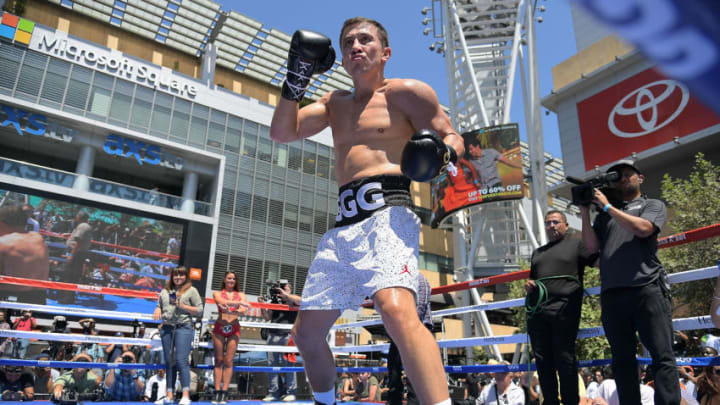18. Golovkin defeated Andre Dirrell in the semifinals at the 2004 Olympic Games
Andre Dirrell is by far the most recognizable name on Gennady Golovkin’s Olympic ledger. In the semifinals at the 2004 Games, Golovkin bested Dirrell via a competitive 23-18 score — a result that forced Dirrell to settle for a bronze medal. It marked the end of an impressive Olympic run for the gifted Dirrell that saw him narrowly edge past Cuban Yordanis Despaigne (12-11) in the quarterfinals.
Although Dirrell has failed to fulfill his potential as a professional, he remains, and certainly was at the time, an absurdly athletic switch-hitter who can fleetly strafe around the ring while firing blinding counter shots. Dirrell’s range — a three-inch height and five-inch reach advantage — should have given Golovkin problems, but the Kazakh’s ability to claim a decision is a testament to his ability to cut off the ring, close distance and dictate tempo.
Since he turned pro following the 2004 Olympics, Dirrell has almost exclusively campaigned at 168 pounds and has never been in position to fight Golovkin again. Dirrell’s participation in the Super Six World Boxing Classic ended following a narrow loss to Carl Froch and his DQ win over Arthur Abraham, who knocked Dirrell out cold with an illegal blow after the American has slipped to the canvas. This started an odyssey that saw protracted inactivity and mixed performances, including a second title shot setback against James DeGale.
Meanwhile, Gennady Golovkin ascended to boxing’s pinnacle by dominating every available contender at middleweight. Interestingly, Dirrell’s gold medal-winning Olympic teammate, Andre Ward, also developed into one of boxing’s best pound-for-pound fighters alongside Golovkin, serving as yet another reminder of what might have been for Dirrell — a fighter with more natural gifts than two boxers who ended up producing so much more.
